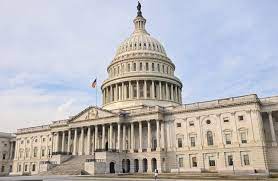Kerry Boyd Anderson
US politics has had a rocky start to the year. Republicans, newly in charge of the House of Representatives, struggled to elect a speaker – taking 15 votes to do so, the most since the Civil War. This political spectacle highlighted the reality that Republicans have a narrow margin of control in the House, potentially allowing small groups of lawmakers to derail the legislative process.
With Democrats maintaining a majority in the Senate and holding the presidency, while Republicans control the House, it is not surprising that about three-quarters of Americans lack faith in the federal government’s ability to address important problems, according to a December AP-NORC poll. This political contentiousness raises a bigger question: What do voters want from Congress and, in particular, what do Republican voters want from their leaders? Any analysis of US politics should take into account the reality that it is a country with more than 330 million people, several regions and multiple subcultures. Representing this large and widely diverse population in national politics are only two viable political parties. It is, therefore, nearly impossible for either party to be internally unified.
Both parties are struggling to respond to the interests of constituencies with widely different experiences, needs, values and views. However, much of the political focus is currently on the Republican Party, as it now leads the House and is beginning to see competition for its next presidential candidate. Donald Trump is officially running again and Nikki Haley, a former governor of South Carolina and ambassador to the UN under Trump, is expected to announce her candidacy this month. Others might enter the race later. Republican voters will play a crucial role in influencing the House and in determining who will be their next presidential candidate. Republican members of the House will be far more influenced by Republican voters than by the broader voting public; this is particularly true for Republicans from “red” districts who do not face serious competition from Democrats, while Republicans from more competitive districts are less able to ignore independent or swing voters.
So far, Americans do not have an optimistic view of the new House leadership. A January CNN poll found that 73 percent of adult Americans feel that the Republican House leaders do not have the right priorities. While 59 percent also disapprove of Democratic leaders’ performance, Republicans face higher disapproval. One factor is that Republican leaders lack strong support from their own voters; 46 percent of Republicans and Republican-leaning independents do not believe that the House is pursuing the right priorities.
A recent Pew Research Center poll found that 64 percent of Republicans want House leaders to “stand up” to President Joe Biden, even at the cost of progress in addressing the country’s problems. House leaders have expressed an interest in launching multiple investigations into the Biden administration and have already started some, including the “Biden Family Investigation” and an investigation into the southern border. Some have also called for impeaching Biden. Polling suggests that these ideas are generally popular with Republican voters but not with the broader electorate. Pew found that 65 percent of the public are concerned that Republicans will spend too much effort investigating the administration, while 56 percent of Republicans and Republican-leaning voters are concerned that the House will not focus enough on investigations – a major clash in priorities between Republicans and other voters. Similarly, only 28 percent of the broader electorate wants the House to look into impeaching Biden, compared with 55 percent of Republicans, according to a November Morning Consult-Politico survey.
Polls also suggest that there are significant gaps between policy priorities for Republicans and the broader public. For example, the Morning Consult-Politico poll found that border security is a priority for 76 percent of Republicans compared to 45 percent of overall voters, while banning schools from teaching about LGBTQ issues in younger grades is a priority for 61 percent of Republicans compared to 35 percent of the electorate. Multiple polls have found that Republicans and Democrats share concerns about the economy, though they tend to emphasize different economic problems. The Morning Consult-Politico poll found that Republican voters are much more willing to demand spending cuts before raising the debt limit; however, most Republicans and other voters agree that they do not support cutting Medicare and social security, which are major contributors to the debt.
In addition to disagreement over priorities between Republicans and other voters, there are also divisions within the Republican Party. Polls have shown that Republicans have varying ideas about what makes a good Republican and how to prioritize policies. The upcoming competition for the Republican Party’s nomination for president will place additional pressure on internal party fault lines. Over the next year, House leaders are more likely to prioritize the concerns of Republican voters. The result is likely to be many investigations into the Biden administration and into Biden and his family. Although many Republicans will welcome this, it risks frustrating independent and swing voters. The House is also likely to focus on border security and cultural issues around gender and sexuality. Raising the debt limit will be deeply contentious and riskier than usual, given Republican views on the issue and the ability of a few House members to block legislation. Overall, Congress will struggle to pass significant legislation, as the House leadership pursues Republicans’ goals while the Senate leadership pursues Democrats’ goals. Meanwhile, the presidential primary will determine the future shape of the Republican Party.







